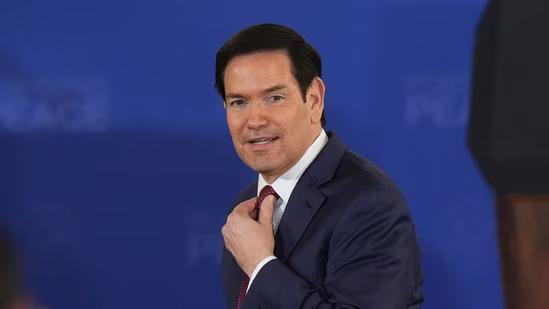
We Keep an Eye on India & Pak Situation Every Single Day: US
The ongoing tensions between India and Pakistan have been a major concern for the international community, with the United States being no exception. In a recent statement, US Secretary of State Marco Rubio revealed that the US “keeps an eye” on the situation between India and Pakistan “every single day”. This statement has sent shockwaves across the globe, with many wondering what exactly the US intends to achieve by keeping a close eye on the situation.
For those who may have missed the statement, Marco Rubio made the comments while discussing the ongoing conflict between Russia and Ukraine. While the context may have been different, his words sent a clear message that the US is closely monitoring the situation between India and Pakistan, and is likely to play a role in finding a solution.
So, what exactly does the US hope to achieve by keeping an eye on the situation between India and Pakistan? In his statement, Rubio made it clear that the US is not aiming for a permanent ceasefire, but rather a peace deal. This is a significant departure from the usual diplomatic language, which often emphasizes the need for a ceasefire as a first step towards resolving conflicts.
In the context of India and Pakistan, a peace deal would likely involve a comprehensive agreement that addresses the root causes of the conflict, including the Kashmir dispute and the use of terrorism as a tool of state policy. This is a tall order, given the deep-seated animosity between the two countries and the complexities of the issues involved.
However, the US has a track record of successfully brokered peace deals in other parts of the world. For example, the US played a key role in the Camp David Accords, which brought peace to the Middle East in the late 1970s. Similarly, the US was instrumental in brokering the Good Friday Agreement in Northern Ireland, which brought an end to decades of sectarian violence.
So, what makes the US think it can succeed where others have failed? The answer lies in its unique position as a global power, with a strong military presence and a willingness to engage with both India and Pakistan on a range of issues. The US has a long history of engagement with both countries, dating back to the Cold War era.
During the Cold War, the US saw India and Pakistan as strategic allies in the region, with India being a key player in the non-aligned movement and Pakistan being a key player in the Pakistan-US alliance. In the post-Cold War era, the US has continued to engage with both countries, with a focus on promoting stability and security in the region.
In recent years, the US has been particularly active in the region, with a focus on countering terrorism and promoting economic development. For example, the US has provided significant military aid to both India and Pakistan, with a focus on building their capacity to counter terrorism.
The US has also been a key player in promoting economic development in the region, with a focus on trade and investment. For example, the US has been a key partner in the development of the India-US trade agreement, which aims to increase trade and investment between the two countries.
Given its unique position and its track record of success in brokering peace deals, it is clear that the US has a significant role to play in finding a solution to the conflict between India and Pakistan. However, the road ahead will be long and difficult, requiring a sustained effort from all parties involved.
In conclusion, the US Secretary of State’s statement that the US “keeps an eye” on the situation between India and Pakistan “every single day” is a significant development that highlights the US’s commitment to finding a solution to the conflict. While the road ahead will be challenging, the US has a unique position and a track record of success that makes it well-placed to play a key role in brokering a peace deal.



